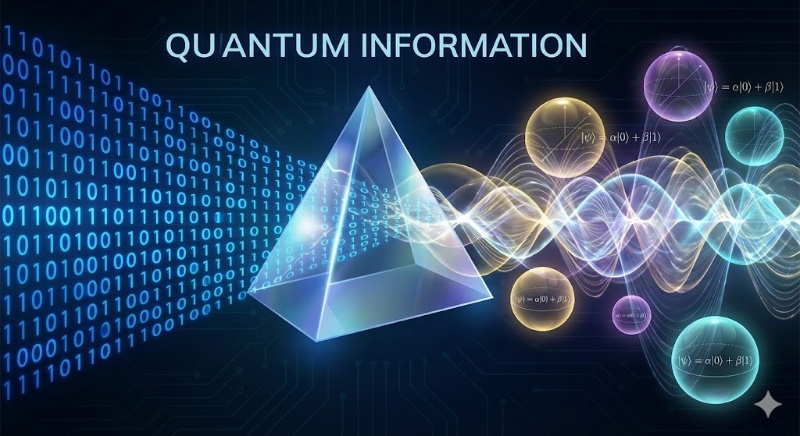Physical and information theoretic principles of quantum intoformation technology.
Quantum mechanical measurements, time development for open quantum systems, density matrices.
Qubits, quantum gates and quantum circuits. Universal quantum gates.
Quantum mechanical entanglement and teleportation and quantum cryptography.
Examples of important quantum algorithms. Quantum superiority.
Interference, decoherence, bit errors and error correction.
SH2381 Quantum Information 7.5 credits

This course deals with physical and information theoretical aspects of quantum information technology and quantum computations.
Information per course offering
Choose semester and course offering to see current information and more about the course, such as course syllabus, study period, and application information.
Information for Spring 2026 Start 13 Jan 2026 programme students
- Course location
AlbaNova
- Duration
- 13 Jan 2026 - 13 Mar 2026
- Periods
Spring 2026: P3 (7.5 hp)
- Pace of study
50%
- Application code
61093
- Form of study
Normal Daytime
- Language of instruction
English
- Course memo
- Number of places
Places are not limited
- Target group
- No information inserted
- Planned modular schedule
- [object Object]
- Schedule
Contact
Course syllabus as PDF
Please note: all information from the Course syllabus is available on this page in an accessible format.
Course syllabus SH2381 (Spring 2022–)Content and learning outcomes
Course contents
Intended learning outcomes
After completion of the course, you should be able to:
- describe the principles of qubits, different types of quantum gates and quantum circuits
- analyze the properties of simpler quantum algorithms
- perform calculations of simpler quantum information processes
- describe the principles of quantum teleportation and quantum cryptography
- explain the mechanisms behind bit errors and quantum error correction
- perform and report on laboratory work related to quantum information
Literature and preparations
Specific prerequisites
Completed course in quantum mechanics, corresponding to the content of course SI2380.
English B / English 6
Literature
Examination and completion
Grading scale
Examination
- INL1 - Homework problems, 6.0 credits, grading scale: A, B, C, D, E, FX, F
- LAB1 - Laborations, 1.5 credits, grading scale: P, F
Based on recommendation from KTH’s coordinator for disabilities, the examiner will decide how to adapt an examination for students with documented disability.
The examiner may apply another examination format when re-examining individual students.
If the course is discontinued, students may request to be examined during the following two academic years.
Examiner
Ethical approach
- All members of a group are responsible for the group's work.
- In any assessment, every student shall honestly disclose any help received and sources used.
- In an oral assessment, every student shall be able to present and answer questions about the entire assignment and solution.